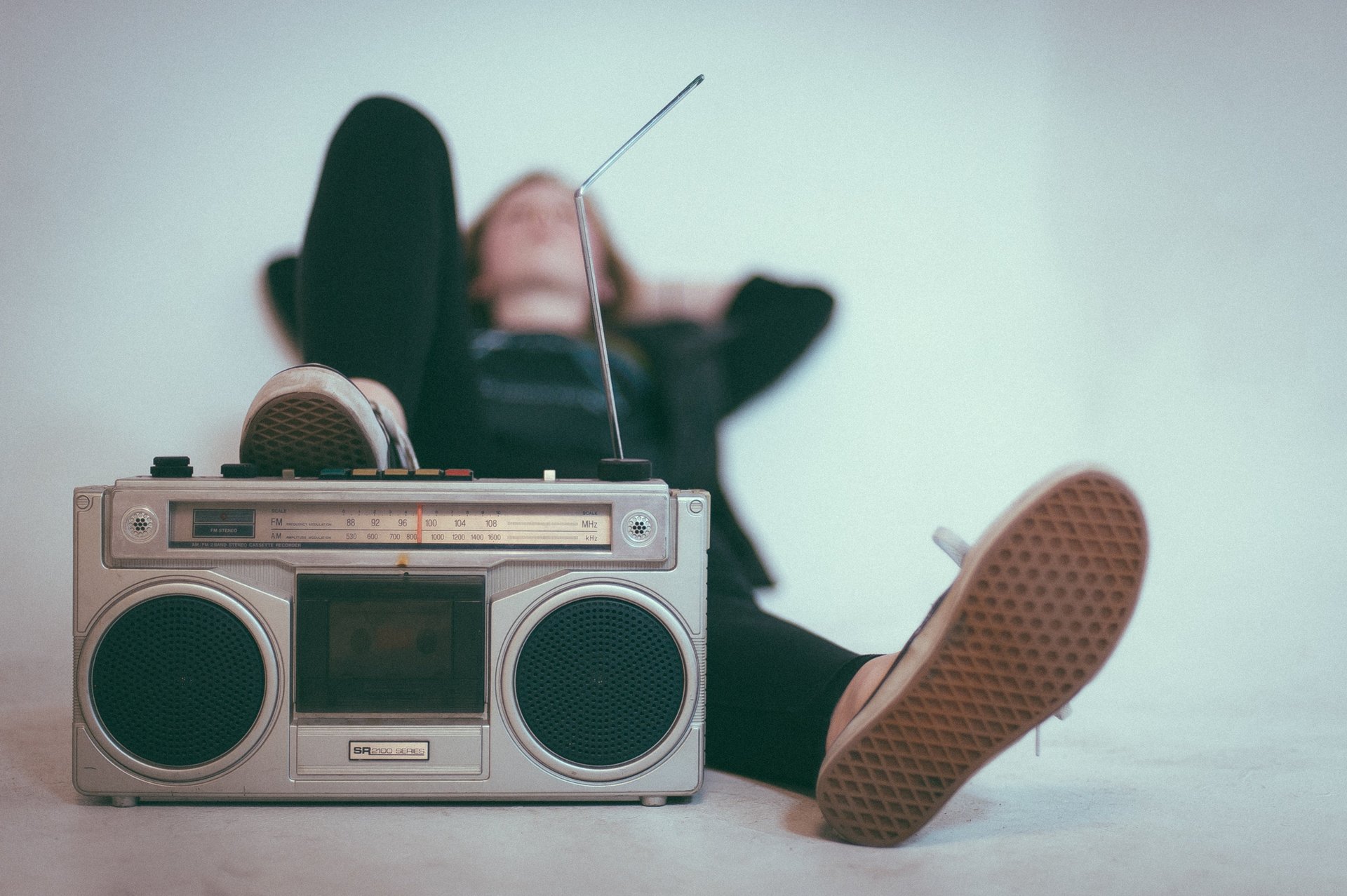Joe Frank’s absurdist dreamscapes proved that real art has a place on the radio
I can’t remember when I became a Joe Frank listener, which is fitting.


I can’t remember when I became a Joe Frank listener, which is fitting.
The radio host and artist just surfaced one night, with his long, confessional monologues, descriptions of anxious dreams, encounters with troubled women, parties, and segments of phone calls that were sometimes real, sometimes fictional—all of which could occur in a single show. And at some point years ago, tuning into Joe Frank on Sundays at 11 p.m. (on my local public radio station, WNYC) became a ritual. It felt like practice in lucid dreaming.
Frank died on Jan.15 at the age of 79. Though little-known by mainstream standards, he indirectly inspired a whole family of radio shows we admire today. Ira Glass, creator of This American Life, started in radio as Frank’s production assistant. On All Things Considered, he recalled the first time he encountered Frank in the studio.
That was, Glass said, “the first time I heard radio narrative, which is, like, what I’ve spent my life doing.”
Although many of today’s prominent podcasts can be seen as descendants of the evocative radio narratives perfected by Ira Glass—perhaps Frank’s most famous acolyte—none approach the brilliance of Joe Frank. Shows like Serial or Marc Maron’s WTF might function as great journalism, storytelling, or interviewing, but Joe Frank was great art.
More than linear narratives, Frank’s shows painted audio collages in the spirit of Dadaist “cut-ups” by writers like William S. Burroughs. Frank’s included single-sided phone conversations, and two-person discussions between himself and a revolving cast of actors variously playing ex-lovers, ailing parents, and long-deceased dictators. The subject matter was often brutally intimate; everything from breakups to terminal illness was discussed with heartbreaking frankness. Delivered in a voice once compared to dirty honey, the shows led you to contemplate big topics—the nature of reality, the depth of human cruelty, the ways we delude ourselves in love, and most of all, death.
Although he would record hours of tape to find the choice nuggets that would air in his show, Frank’s work was never scripted. By comparison, the rest of the radio sounds utterly staged and formulaic. It has to be, of course. We need the news. We need informative interviews and brilliant interviewers with predictable formats. And we need storytellers who feed us stories that can be fact-checked and told chronologically, one at a time.
But we also need the comedy and angst of absurdist art— not unlike that which appeared in The Awl, to which we also said goodbye this week—to remind us that it’s all theatre. That Joe Frank could so bravely peel back artifice to make that point, and often make us laugh in the meantime, made his listeners feel less alone.
That said, lots of people wouldn’t get it, didn’t get it. A writer for Slate, who called Frank “the ultimate acquired taste,” recalled when the host famously hired an actor to play a mime, a touring performer in town for a gig, appearing on the show to be interviewed. Together they satirized the language of highbrow avant-garde artists, then Frank asked the fake mime to perform. On the radio.
Another quintessential Joe Frank monologue details a dinner party where he’s seated with Hitler, Stalin, Pol Pot, and Mao, who are discussing kitchen renovations, tailoring, and ideal wedding flower arrangements. (You can listen to a portion in this Fresh Air interview from 2003.) What did it mean? Frank wasn’t interested in explaining his art. In a 2013 interview for The Believer, he recalled being nominated for a fellowship, and receiving questions about his aesthetic.
“I thought, I don’t have an aesthetic, a philosophy,” Frank said. ”I found it extremely troubling, and I wanted to say to them, ‘Listen, you listen to the work and you decide whether you want to support it. But don’t ask me why I’m doing it, because I really do not know the answer.'”
Frank, who was born in France, and whose Jewish family fled the Nazis just before the Second World War, preferred to stick to more existential questions. Before moving to the Santa Monica, CA-based KCRW in 1986, he’d been hired as an All Things Considered host. But he left the prominent position when he realized it was never going to deal with what concerned him, like consciousness, chronic illness, and the reasons we’re here.
Fortunately, Frank found an outlet, and an extensive archive of his work is available online. It’s worth diving into. Try playing the shows late at night, or finding them where they still appear on an NPR schedule. Pick any episode to start. And try not to focus too much—I’ve found abandoning oneself to the absurdity allows the connective threads to reveal themselves.